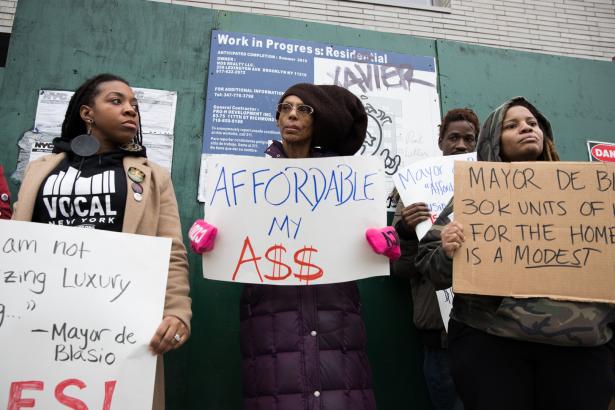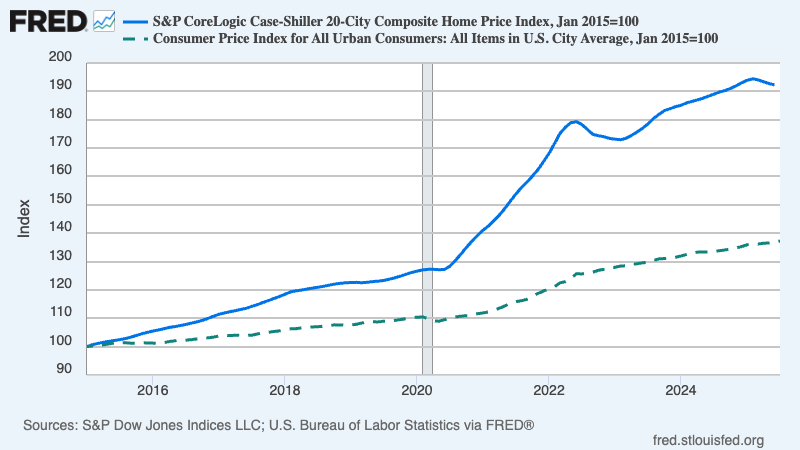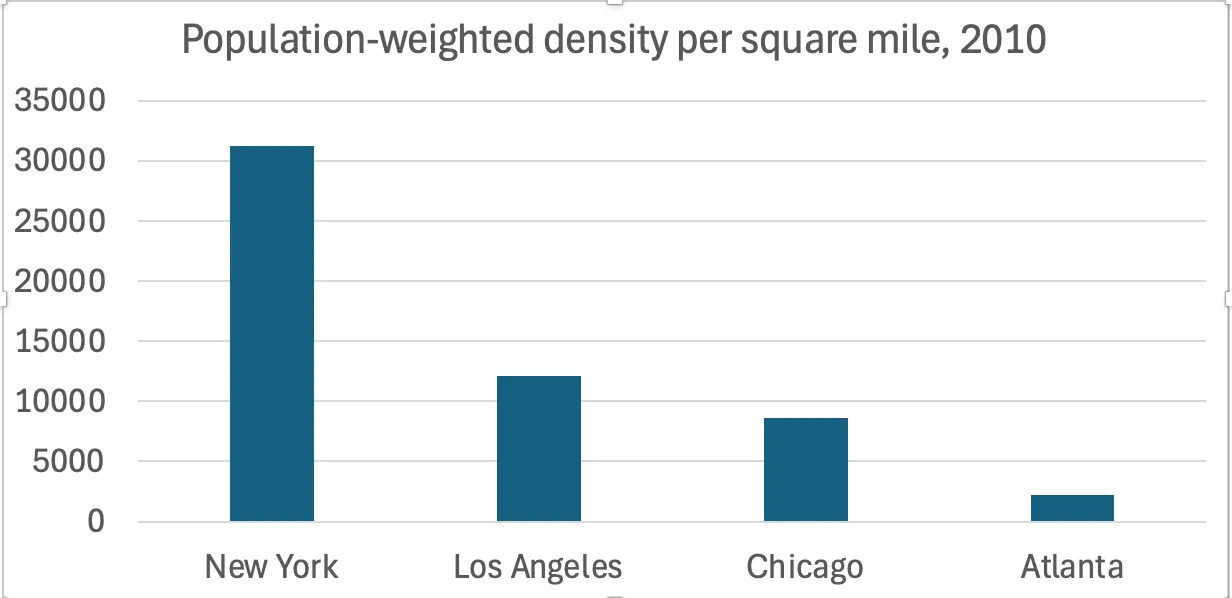Something strange may be about to happen. It looks as if Trump officials will soon declare that we face a national housing emergency — and they’ll be telling the truth! We do, in fact, face such an emergency.
Unfortunately, everything Trump is doing that affects housing availability will make the emergency worse.
Background: Donald Trump loves emergencies. He has been in office less than 8 months, but has already formally declared 9 national emergencies, as well as a “crime emergency” in Washington DC.
He’s probably about to use similar claims about an urban crime emergency to send the National Guard into Chicago — which, as Jeff Asher notes, “has likely had fewer shootings this year than any year since 1965 or 1966.”
As far as I can tell, so far all of Trump’s claims about emergency have been false excuses for power grabs. There is no national crime wave demanding military action — America’s big cities are, on average, safer than they’ve been since the 1960s. There is no economic emergency to justify the highest tariffs in 90 years — Trump himself keeps insisting that the U.S. economy is doing great.
And when they get a chance, courts have by and large been declaring Trump’s power grabs to deal with imaginary emergencies illegal. Two courts have now ruled that he broke the law by invoking emergency economic powers to impose tariffs. Another court has ruled that he had no right to send the National Guard into Los Angeles.
Given this pattern, the scariest words in the English language right now may be “Trump officials declare that we are facing a national emergency.” So I got a sinking feeling when I saw Scott Bessent, the Treasury secretary, saying that the administration may soon declare a national housing emergency.
The thing is, Bessent isn’t wrong. We do, in fact, have a housing emergency. Over the past decade home prices have risen much faster than the overall cost of living, so the popular perception that housing has become unaffordable is grounded in reality:
Why has this been happening? The home price surge since 2015 looks very different from the housing bubble of the 2000s. That bubble was largely driven by speculation, with house prices rising much faster than rents. The price surge also bypassed sunbelt cities like Atlanta, Houston and Dallas, where housing supply expanded to meet rising demand.
This time, however, we’re looking at a truly national phenomenon. As Edward Glaeser and Joseph Gyourko document in a recent paper, housing prices have risen rapidly, without eliciting a large increase in homebuilding, even in cities that avoided the 2000s bubble.
Back in July, looking at the case of Atlanta, I suggested that we might be looking at the limits of sprawl. In the 2000s cities like Atlanta could add housing by spreading ever further out, adding single-family homes at their edges. At this point, however, they’ve sprawled so far that this doesn’t work anymore. Another recent academic paper, by Orlando and Redfearn, argues that sprawl has been
pushing single-family home builders farther away from the amenities that make these urban areas attractive. Eventually, this progression reaches a limit in which commuting back to these amenities is too costly. At this point, the greenfield land is effectively “built out.”
The obvious answer is to turn inwards — to build more housing by increasing population density, in particular by building multifamily housing. As I noted in my Atlanta piece, sunbelt cities still have extremely low population densities compared with blue-state cities:
Source: Census
So they could add a lot more housing and bring prices down — if local politics would allow it. Unfortunately, it generally won’t. Glaeser and Gyourko conclude their paper on a despairing note, suggesting that all our major cities, in red states as well as blue, have become places where existing homeowners have become effective at stopping new construction.
Which brings me back to Bessent saying that we have a housing emergency. What will he do about it?
Another man, in another administration, might go YIMBY — “yes in my backyard” — and try to tackle the political obstacles to housing construction. But take a look at Mandate for Leadership, the manifesto issued by the Heritage Foundation’s Project 2025. It’s all for deregulation when it comes to things like pollution controls. But when it comes to housing, it goes full NIMBY:
Congress should prioritize any and all legislative support for the single-family home … American homeowners and citizens know best what is in the interest of their neighborhoods and communities. Localities rather than the federal government must have the final say in zoning laws and regulations, and a conservative Administration should oppose any efforts to weaken single-family zoning.
So no, the Trump administration won’t do anything to expand housing supply, which is the only way to make housing more affordable.
In fact, Trump’s non-housing policies will discourage home construction. Nothing says “make housing cheaper” like imposing a 35 percent tariff on imports of Canadian lumber and deporting many of the immigrant workers crucial to the U.S. construction industry.
So what are we to make of Bessent’s remarks about housing? If we’re lucky, they’ll turn out to be empty rhetoric, an attempt to pretend to be doing something ahead of the midterms.
But during last year’s campaign JD Vance falsely blamed immigrants for the housing crisis. So even though this emergency, unlike Trump’s other emergencies, is real, it may become an excuse for another power grab.
Paul Krugman is a professor at CUNY Grad Center, Nobel laureate and former columnist, NY Times. Also, according to Donald Trump, a “Deranged BUM.”




Spread the word